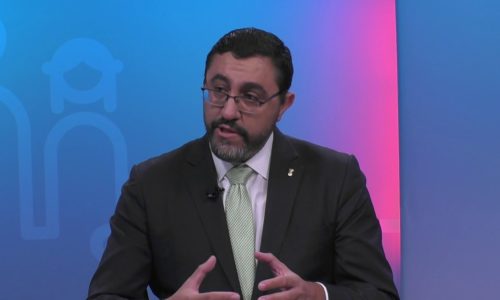Do I need a family doctor? |

- A family doctor can be your first point of contact within the healthcare system.
If you have a medical need that comes up quickly, such as an unexpected rash, flu-like symptoms, or strep throat, your family doctor can be your go-to choice for treatment. Far too many Americans use an urgent care center or an emergency room for problems like this. It is much more cost effective to see your family doctor. Most family doctors do set aside a certain number of appointments each day to be filled on the same day by patients who need to be seen for unexpected illness such as this. A medical emergency would of course be an exception to this. If you have a true medical emergency, you should go to the emergency room.
- Family doctors follow patients through the full cycle of life.
Family doctors love seeing small children and elderly patients, and everyone in between. Sometimes a family doctor will start seeing someone as a small child, and keep seeing them throughout their life, even seeing their children and maybe even grandchildren as time goes by. Because they can treat a wide range of medical problems, they are the perfect doctor to see you at any time of your life. When you have a doctor-patient relationship over many years, or even a lifetime, you can really build a meaningful relationship. This relationship is important in many ways.
- Family doctors do more than you think.
Family doctors are trained to take care of many different conditions. A family doctor can help you to manage diabetes, heart disease, arthritis, common skin conditions, kidney disease, high cholesterol, thyroid disease, and many more chronic diseases. They are also very experienced at managing the combination of all of the conditions that a patient might have, rather than only using specialty care, where you need a different doctor to manage each problem. A family doctor will treat the whole patient, even treating depression, anxiety, and other mental health problems.
A family doctor can help you to quit smoking, or help you to lose weight, and can help with many other lifestyle or social issues.
Most family doctors do minor surgical procedures in the office, like removing warts, doing a biopsy on a mole that might be malignant, sewing up cuts, injecting cortisone into a joint, and many other minor procedures. This can save you an expensive trip to a specialist.
- Your family doctor knows you own personal history.
Over time, family doctors get to know patients very well. They know your chronic medical problems and how that affects anything new that comes up. They know how you have reacted to medications in the past. They know how stoic you are, so that when you come in with a complaint, they might take it more seriously than a doctor who doesn’t know you. Or maybe they get to know that you are a little anxious about your health, so they don’t blow something out of proportion, but provide more reassurance when that is necessary. They also can watch for changes in your condition over time, and might pick up on a change in your health quicker than someone who doesn’t know you well.
- Your family doctor knows your family history.
When a doctor is seeing multiple generations in one family, this really helps them to know your family history well. Even if they are not seeing other members of your family, they make it a priority to get to know your family history and how that impacts your health needs.
- Family doctors can help to coordinate specialist care.
If or when you need to see a specialist, your family doctor can help you to find a specialist who fits your specific needs, and even your personality. They are also good at coordinating care with multiple specialists. For instance, your family doctor can monitor the medications given to you by different specialists to assure there are no interactions or duplications.
- Family doctors can save healthcare dollars.
There is plenty of evidence that using more primary care saves money for a healthcare system. This is certainly something that we need in this country. Studies show that an increase in primary care spending leads to a decrease in overall healthcare spending.
- Family doctors can improve lives.
Most importantly, there is evidence that family doctors offer your family better overall health, and isn’t that what we all want for our family?
If you have any more questions just Ask Hanna, our health advisors are here to help.
Dr. Anita Bennett MD – Health Tip Content Editor
Image: ©Shutterstock / VGstockstudio








